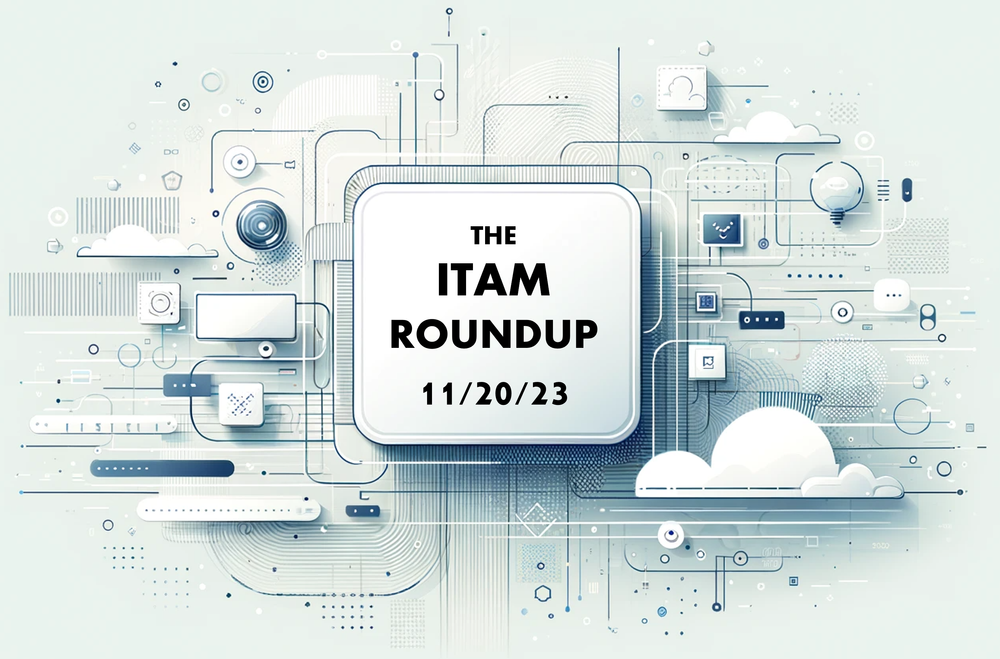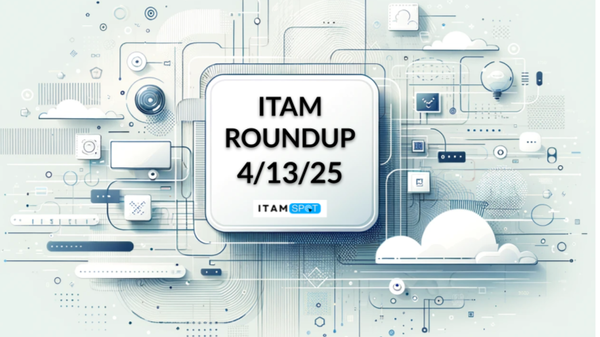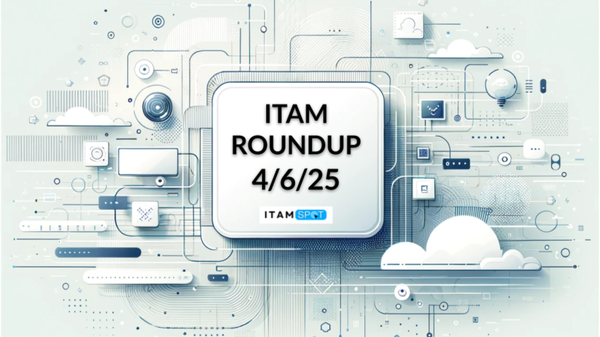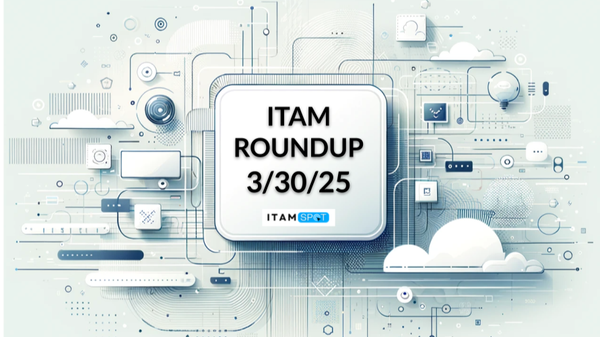The ITAM Roundup: 11/20/23
Global semiconductor sales to jump 20% in 2024: IDC
IDC, a technology research and advisory firm, has adjusted its semiconductor market outlook, forecasting a 20.2% year-over-year growth in chip industry revenue in 2024. This growth is attributed to increasing demand from AI server and endpoint device manufacturers, particularly in the United States. Not exactly a surprise given all the hype these days.
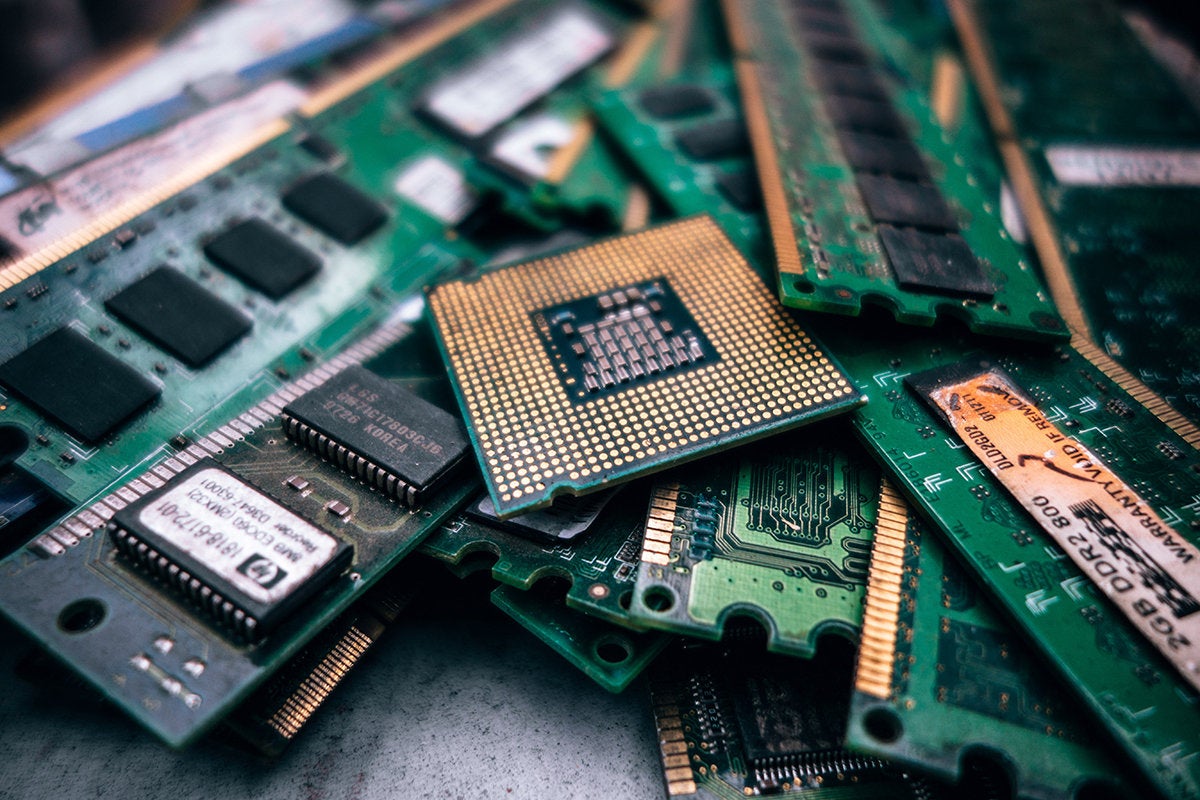
Microsoft Ignite 2023: 11 takeaways for CIOs

Microsoft Ignite 2023 has featured a significant focus on artificial intelligence (AI), particularly generative AI. The conference introduced various new products and enhancements, including updates to the Copilot range of generative AI assistants and new AI capabilities for large language models (LLMs) in Azure.

The Top 5 Takeaways from Gartner's IT Symposium 2023
Unsurprisingly, one of the main areas highlighted was the growing role of generative AI in IT. AI is expected to act as a customer, request goods and services, negotiate prices, and make purchases by 2028, impacting purchases worth billions of dollars by 2030.
The event also discussed cloud cost management, attracting IT talent, the expanding role of CIOs, and the increasing importance of sustainability in IT.

Uncovering hidden costs: Proactive strategies to address tech debt and obsolescence
The Flexera 2023 Tech Spend Pulse highlights the growing issue of tech debt as a significant challenge for businesses. Tech debt arises when quick fixes or shortcuts are implemented in IT projects to meet immediate needs, leading to long-term challenges as systems evolve and scale. The article emphasizes the importance of proactive measures, such as regular assessments, continuous training, and the use of AI tools, to manage tech debt and technological obsolescence effectively.

Using Power Automate and Azure Automation to Manage the Lifecycle of SharePoint Sites
SharePoint sprawl occurs when organizations have an excessive number of SharePoint sites that are no longer needed, leading to management challenges. The solution involves creating a tracking list in SharePoint to manage site expiration, using Power Automate to automate the approval process for site deletion, and utilizing Azure Automation runbooks to handle the actual deletion of sites based on approval. This approach offers a flexible and customizable solution to manage the lifecycle of SharePoint sites effectively.

Tracking Waste on Kubernetes Clusters
Waste is the primary metric for measuring and tracking Kubernetes optimization progress, as it directly correlates with efficiency and can be understood across the organization. The waste is measured in dollars (as opposed to CPU/RAM) to provide a meaningful metric for business stakeholders, allowing for effective allocation of resources to address inefficiencies. Apptio's tool (Cloudability) can help track infrastructure spending and measure FinOps programs' progress.

Spinning disk is dead: the unavoidable reasons why flash drives are burying hard drives
The article discusses why flash drives, specifically NVMe (nonvolatile memory express) flash drives, are surpassing traditional hard drives (HDDs) in the realm of digital storage. It highlights two main reasons for this shift:
- NVMe flash drives offer significantly faster and more consistent data access speeds compared to HDDs, which are slower and less predictable.
- NVMe drives are more efficient and reliable because they have no moving parts, resulting in lower failure rates, faster rebuild times, and reduced electricity and cooling costs.

IHG maximizes hospitality with multi-cloud
IHG Hotels and Resorts is leveraging a robust multi-cloud architecture, including Aviatrix's cloud networking and Equinix's interconnection technology, to enhance customer experience and business success across its 19 hotel brands. More than 70% of IHG's hotels are franchises, making the company a technology product development firm supporting franchisee-owned hotels. The cloud transformation allows IHG to innovate rapidly, such as developing a demand forecasting model in just six months.

Intel fixes high-severity CPU bug that causes “very strange behavior”
Intel has fixed a high-severity CPU bug known as "Reptar" (CVE-2023-23583) that has the potential to be maliciously exploited against cloud-based hosts. The flaw affects virtually all modern Intel CPUs, causing them to enter a glitch state where normal rules don't apply. Once triggered, the glitch state can lead to system crashes and escalation of privileges. The bug is related to how CPUs manage prefixes that change the behavior of instructions sent by running software. Intel has released microcode updates to address the issue.


